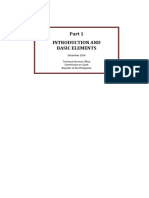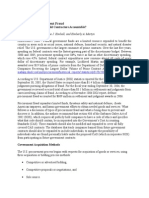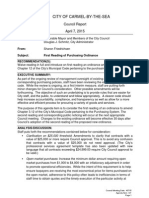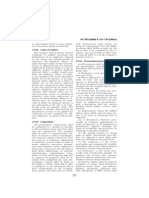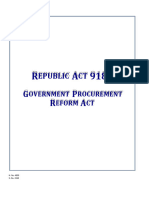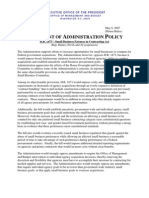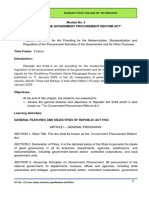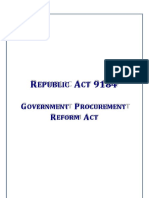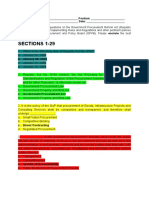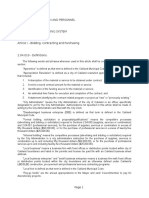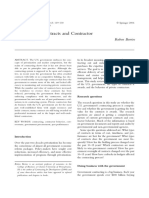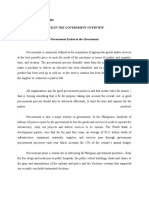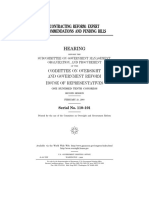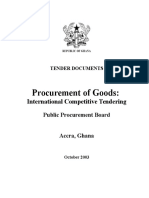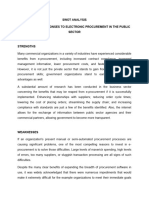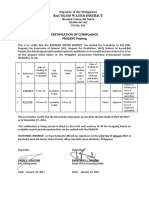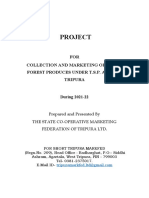0% found this document useful (0 votes)
5K views10 pagesFOMB - Letter - AAFAF - Act 215-2024 - June 26, 2025
Act 215-2024 amends the Municipal Code of Puerto Rico, primarily affecting municipal procurement processes by increasing thresholds for competitive bidding and reducing oversight from municipal legislatures. The Oversight Board expresses concern that these changes will lead to increased costs, reduced competition, and heightened risk of corruption in municipal contracts. The Board also highlights the lack of adequate analysis supporting the need for these amendments and directs the Governor to ensure compliance with PROMESA before implementation.
Uploaded by
Metro Puerto RicoCopyright
© © All Rights Reserved
We take content rights seriously. If you suspect this is your content, claim it here.
Available Formats
Download as PDF, TXT or read online on Scribd
0% found this document useful (0 votes)
5K views10 pagesFOMB - Letter - AAFAF - Act 215-2024 - June 26, 2025
Act 215-2024 amends the Municipal Code of Puerto Rico, primarily affecting municipal procurement processes by increasing thresholds for competitive bidding and reducing oversight from municipal legislatures. The Oversight Board expresses concern that these changes will lead to increased costs, reduced competition, and heightened risk of corruption in municipal contracts. The Board also highlights the lack of adequate analysis supporting the need for these amendments and directs the Governor to ensure compliance with PROMESA before implementation.
Uploaded by
Metro Puerto RicoCopyright
© © All Rights Reserved
We take content rights seriously. If you suspect this is your content, claim it here.
Available Formats
Download as PDF, TXT or read online on Scribd
/ 10
